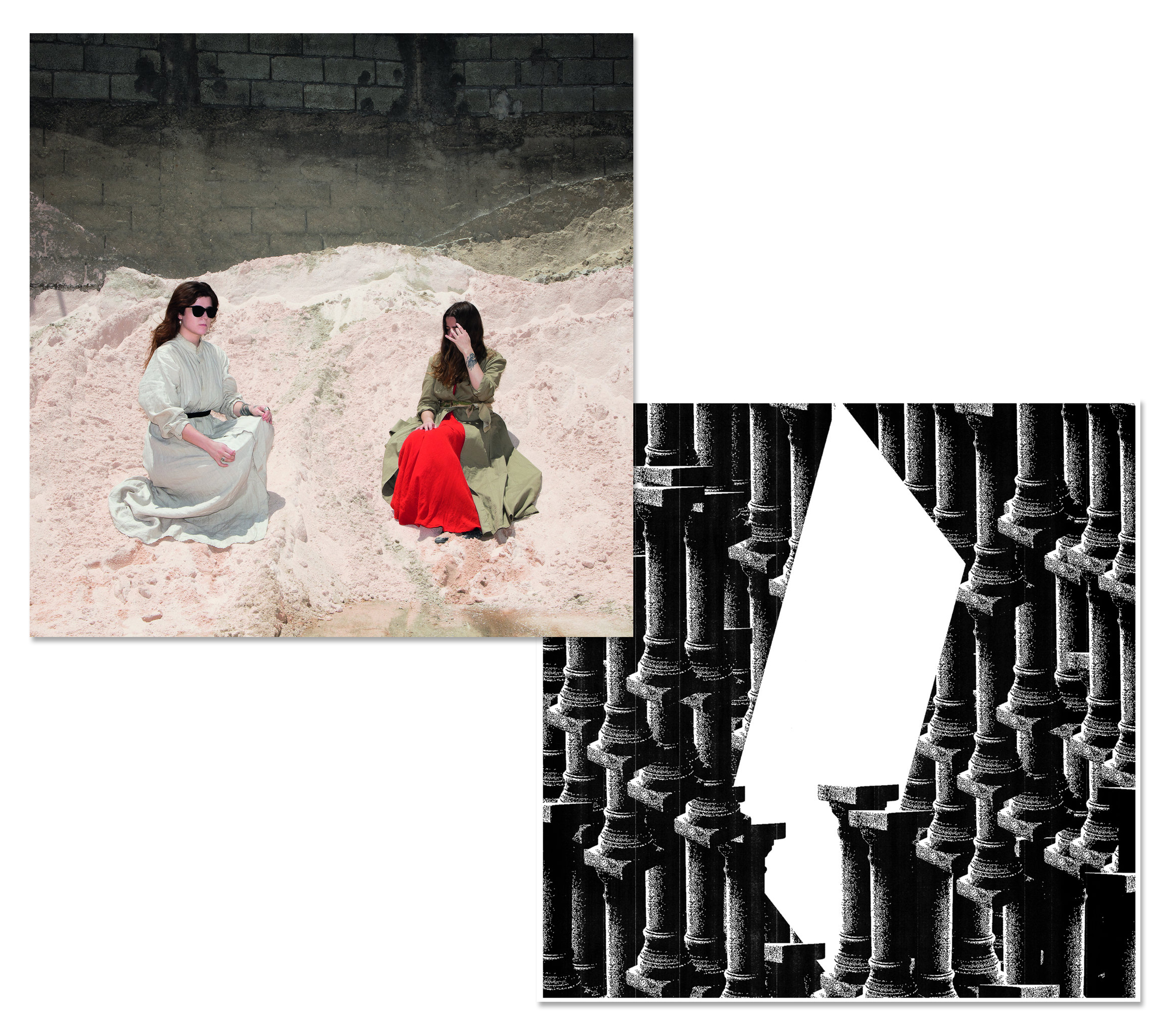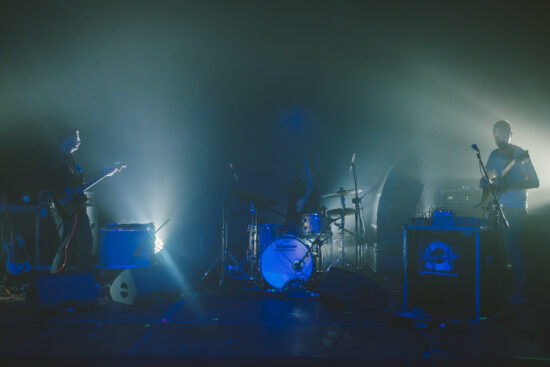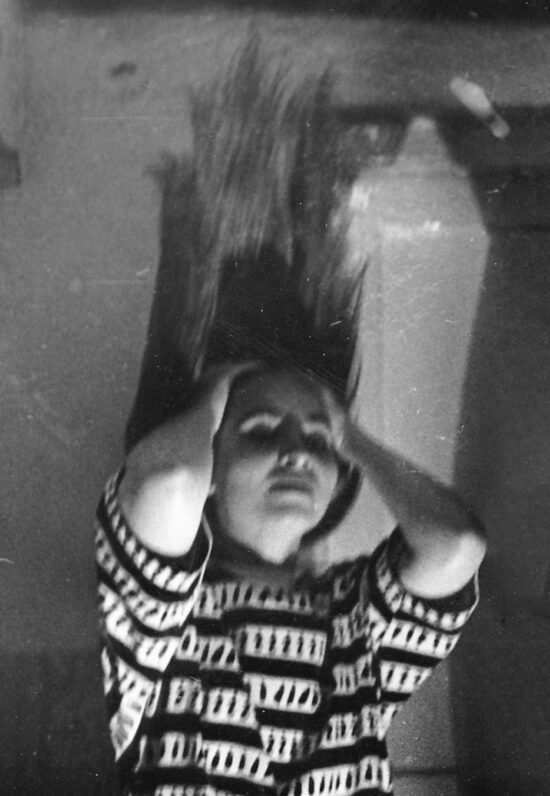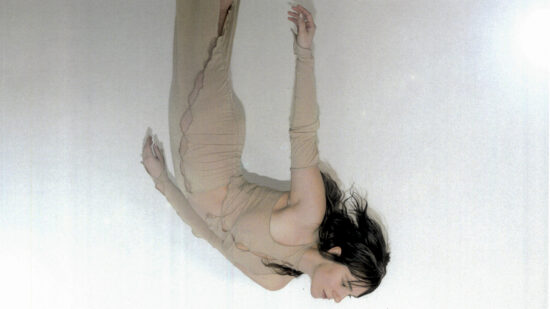In their latest releases, Rakta and Deafkids both redefine their inspirations and approach to broadly understood guitar music. What these two very different records have in common is pushing through the boundaries of their respective genres, resulting in breakthrough, brilliant albums.
Translation: Aleksandra Szkudłapska
If, upon hearing ‘Brazilian music’, you’re still thinking about ‘warm rhythms’, tropicália and samba, let me kindly remind you it’s 2019 and you ought to finally do your homework. There’s a lot of catching up to do: from the impressive jazz / improv scene (take, for instance, Desmonta, one of my favourite South American labels), through the fantastic electronic scene, showcased, among others at the Novas Frequencias festival, to the broadly understood guitar scene. Guitars are merely a point of departure here for a conglomeration of genres and ideas, and two recently released albums by bands representing – for lack of a better label – Brazilian psych are a perfect example here. So perfect that I really have to eat humble pie now, because both Rakta and Deafkids played in my town (Gdańsk, PL) in 2018. Knowing that I was so close to seeing them live – but didn’t – really sucks. The only thing that makes up for it is the fact their latest albums are brilliant, breakthrough works that demonstrate the eclecticism and grand scale of both bands, and a precise vision of what they want to sound like.
Rakta’s Falha Comum is their second full-length album, which broadens the spectrum of post-punk, goth and psychedelic rock. If their debut was a rather classical take at these genres, now they’re openly playing with the set format and perfecting their spatial sound. Their music takes on a mystical character: Paula Rebellato’s processed vocals transport us straight to a witches’ sabbath. The effect may be simple enough, but combined with the music, it creates a mystical and complex narrative. The title track begins rather unexpectedly – flickering somewhere in the background, only to finally bring the drums and a more rhythmical formula to the fore. “Flor da Pele” is locked in a more closed composition, yet it also resembles a film score rather than your typical song. This trend continued in the next track: the intro to “笑笑” sounds like a dusted off piano, and then comes the electrified, beat-heavy ending closed with a street preacher-like monologue. The later part of the material may well be more classic in its combination of guitars, bass, synthesizer passages and percussion instruments (played by the brilliant Mauricio Takara!), but even when the tracks speed up in the spatial space-rock formula, like in “Fim Do Mundo” or “Miragem”, this is just a pretext to build their deeper dimension, differentiate the drumming, whiney guitars and synthesizer patches. This sensation is highlighted by the short, often one-sentence lyrics which sound like prophecies or predictions (Todos os seus pecados / estão em minha boca / todas as palavras / serão códigos abertos / ser humano / mais uma falha comum w „Falha Comum” or a powerful ending in the last track“Ruína”: edificar o espirito / sobre estas ruínas).
Rakta’s album seems to be documenting a mystical celebration, a peculiar sonic spectacle that departs from the rules of the record’s simple layout. Even the choice of “Ruina” as the final track seems a far-from-obvious, devilishly intelligent move. Dark suspension, looking for the unknown, depriving music of simple structures, creative exploration… That’s what the album sounds like.
In turn, Deafkids operate on the intersection of punk, d beat, metal and noise. On the one hand, they attack you with a wall of sound, on the other, they touch upon rhythmical elements, sometimes featured as an intermission of sorts (“Espirais da Loucura”), at other times developed (Oneida-like “Espirais da Loucura II”) or resembling a mix of ideas (middle of “Mente Bicameral” or ending of “Alucinações de Comando”). The pulsating, shaky rhythm is occasionally contrasted with distorted guitar effects (“Estímulos Alucinatórios Verbauditivos I”). All of these elements are united in the rhythmical cavalcade of “Templo do Caos”, where fast-paced drumming meets riffs and reverberating vocals. “Raíz Negativa (Não-Vontade)”, on the other hand, begins with a beat-based intro, only to start growing with denser bass and guitars, but also spatial vocals, carefully meting out the explosions. In “Camisa de Força (Inferno ou Sem Saída?)”, the band amazingly highlights different layers of sound – thudding drums seem to be muted, as if they were played in an adjacent room, with the racket of guitars and effects taking centre stage. An anti-rhythmical moment of the wall of sound is “Vírus da Imagem do Ser”. This is brilliantly conveyed by the album title – meta-programming means creating or modifying the codes of other programmes, here understood as genres. Deafkids perpetuate this revolt in a neat and agile fashion, constantly deconstructing formats and inspirations.
Like on Rakta’s album, there’s also a lot going on here, and like Rakta, Deafkids have definitely gone forward with their music compared to their previous album Configuração do Lamento. Their third record is a psychoactive trip fuelled by distorted vocals, aggressive punky moves, layers of noise and reverb, electronic pulse, crunchy guitars and polyrhythmic drum outings. The Brazilians pack this multitude of elements into the format they’ve perfected, with different layers, sound intensity and rich dynamics. The noise made by Deafkids is multi-faceted – it’s either full of whirrs, clatters and distortions or strictly guitar-based, with a cumulation of rhythmical forms. At the same time, the trio reaches for the traditions of punk and d beat, which they combine with electronic ideas – from beats to white noise, high frequencies (the 39-second finale) and electrified sonic ideas. This is madness, but it’s also a sign of their very own, individual style – hard to digest, and yet evocative and broadening the colourful range of sonic possibilities. Deafkids are cocky and consistently outspoken, and Metaprogramação is such an original and meaningful work that it’s even scary to think what direction they might want to explore next.
Rakta, Falha Comum, La Vida Es Un Mus/Iron Lung Records
LISTEN: 🎶Spotify, 🎶Tidal, 🎶Deezer, 🎶Apple
Deafkids, Metaprogramação, Neurot Recordings
LISTEN: 🎶Spotify, 🎶Tidal, 🎶Apple, 🎶Deezer




